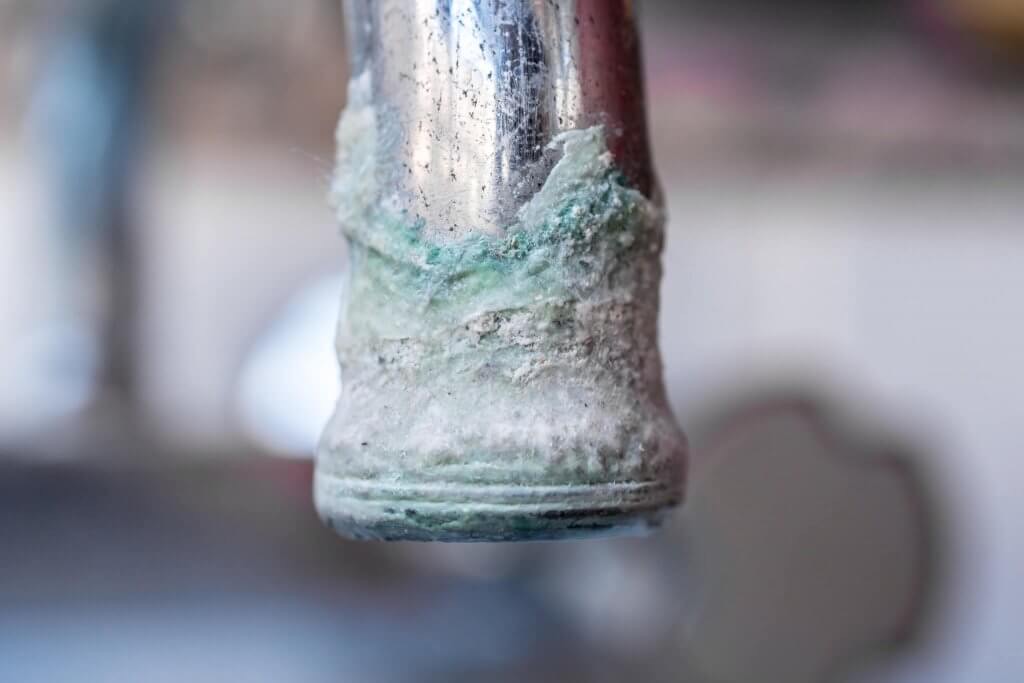Lime scale, also known as calcium carbonate, is a common mineral deposit that forms on surfaces in contact with hard water. It is a white, chalky substance that can accumulate in pipes, appliances, and fixtures, causing damage and reducing their efficiency over time. In this article, we will explore the causes, effects, and prevention of lime scale.
Causes of Lime Scale
Lime scale is caused by the presence of dissolved minerals, primarily calcium and magnesium, in hard water. When hard water is heated or evaporates, these minerals can form solid deposits on surfaces, including pipes, appliances, and fixtures. Hard water is a common problem in many areas, particularly in regions with a high concentration of dissolved minerals in the local water supply.
The hardness of water is measured in grains per gallon (GPG) or parts per million (PPM) of dissolved minerals. Water with a hardness level of 7 GPG or above is considered hard, while levels below 3.5 GPG are considered soft. The level of hardness in water can vary depending on the location and source of the water.
Effects of Lime Scale
Lime scale can have several negative effects on pipes, appliances, and fixtures. One of the most common effects is a reduction in water flow. As the scale builds up inside pipes, it can narrow the opening, reducing the amount of water that can flow through. This can lead to low water pressure, which can be particularly noticeable in showers and faucets.
Another effect of lime scale is increased energy consumption. When appliances, such as water heaters and dishwashers, are coated in scale, they have to work harder to heat the water. This can lead to increased energy usage and higher utility bills. In addition, appliances that are coated in scale may have a shorter lifespan, as the buildup can cause them to malfunction and break down more quickly.
Lime scale can also have aesthetic effects on fixtures and surfaces. It can leave white, chalky stains on sinks, faucets, and showerheads, which can be difficult to remove. In addition, it can cause toilets and bathtubs to look dirty and discolored.
Prevention of Lime Scale
Preventing lime scale buildup can help to maintain the efficiency and lifespan of pipes, appliances, and fixtures. One of the most effective ways to prevent lime scale is to install a water softening system. Water softeners work by removing the minerals that cause hardness in water, which can help to prevent the buildup of scale in pipes and appliances.
Another way to prevent lime scale is to use cleaning products that are specifically designed to remove it. These products typically contain acidic substances, such as vinegar or citric acid, which can dissolve the scale and restore surfaces to their original condition. Regular cleaning with these products can help to prevent the buildup of scale and maintain the appearance of fixtures and surfaces.
In addition to using water softeners and cleaning products, there are several other steps that can be taken to prevent lime scale. These include:
- Flushing pipes regularly to remove any buildup of sediment and minerals.
- Using a descaler or a descaling solution to clean appliances, such as coffee makers and kettles, which can become coated in scale over time.
- Installing a water filtration system to remove impurities from the water supply.
- Avoiding the use of harsh chemicals, such as bleach, which can react with minerals in the water to form scale.
Conclusion
Lime scale is a common problem that can have negative effects on pipes, appliances, and fixtures. It is caused by the presence of dissolved minerals, primarily calcium and magnesium, in hard water. Preventing lime scale buildup can help to maintain the efficiency and lifespan of pipes, appliances, and fixtures. This can be achieved through the use of water softening systems, cleaning products designed to remove lime scale, and other preventative measures such as flushing pipes regularly and installing water filtration systems.
While it may be tempting to ignore the buildup of lime scale, doing so can lead to more significant issues down the line. For example, pipes that become heavily coated in scale may need to be replaced, which can be expensive and time-consuming. In addition, appliances that are coated in scale may become damaged or malfunction, leading to costly repairs or replacement.
If you suspect that you have hard water or notice signs of lime scale buildup, it is important to take action as soon as possible. This can help to prevent further damage and ensure that your pipes, appliances, and fixtures continue to operate efficiently.

